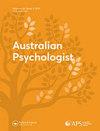Association between sleep quality and social media use in Australian adults
IF 2
4区 心理学
Q2 PSYCHOLOGY, MULTIDISCIPLINARY
引用次数: 0
Abstract
ABSTRACT Objective The current study examined the relationship between use of social media platforms and sleep quality in Australian adults. Method Data from 814 adults aged 18-59 years (65% female) were collected using an online survey. Participants reported socio-demographics, social media usages, and sleep quality was assessed using the Pittsburgh Sleep Quality Index. Results Two-thirds (68%) of participants reported poor sleep quality (overall PSQI score >5). Facebook (73%) and Facebook Messenger (70%) were the most used social media platforms, then Instagram (68%) and YouTube (63%). Multivariable logistic regression showed that Facebook Messenger users had 70% higher odds (OR 1.70, 95% CI 1.20-2.41), while WhatsApp users had 38% lower odds (OR 0.62, 95% CI 0.42-0.90) of reporting poor sleep quality compared to their non-user counterparts. Higher social media use was associated with poor sleep quality in a dose-dependent manner. Specifically, participants using social media for >3.5 hrs/d, compared to using social media ≤2 hrs/d, had more than double the odds for reporting poor sleep quality (OR 2.45, 95% CI 1.49-4.01 for using social media 3.5-5.0 hrs/d versus OR 2.79, 95% CI 1.77-4.41 for using social media >5.0 hrs/d). Conclusions The findings underscore the need for more efficient ways to use social media platforms to optimise sleep quality. Implications for practitioner psychologists are discussed. KEY POINTS What is already known about this topic: Higher social media use is associated with poorer sleep quality in adolescents. One in two Australian adults report sleep problems. There is scant research about the link between social media and sleep in adults. What does this topic add: Australian adults use social media on average 3.9 hrs/day. Using social media > 3.5 hours per day showed double the odds of adults reporting poor sleep quality than using social media ≤ 2 hours per day. Practitioners assisting Australian adults with poor sleep should consider social media use as a potential contributor, albeit more research is warranted.澳大利亚成年人睡眠质量与社交媒体使用之间的关系
【摘要】目的本研究调查了澳大利亚成年人使用社交媒体平台与睡眠质量之间的关系。方法采用在线调查方式收集814名18-59岁成人(65%为女性)的资料。参与者报告了社会人口统计、社交媒体使用情况,并使用匹兹堡睡眠质量指数评估了睡眠质量。结果三分之二(68%)的参与者报告睡眠质量较差(PSQI总分为50分)。Facebook(73%)和Facebook Messenger(70%)是最常用的社交媒体平台,其次是Instagram(68%)和YouTube(63%)。多变量逻辑回归显示,Facebook Messenger用户报告睡眠质量差的几率比非用户高70% (OR 1.70, 95% CI 1.20-2.41),而WhatsApp用户报告睡眠质量差的几率比非用户低38% (OR 0.62, 95% CI 0.42-0.90)。较高的社交媒体使用量与睡眠质量差呈剂量依赖关系。具体来说,与使用社交媒体≤2小时/天的参与者相比,使用社交媒体3.5小时/天的参与者报告睡眠质量差的几率增加了一倍多(使用社交媒体3.5-5.0小时/天的参与者报告睡眠质量差的OR为2.45,95% CI为1.49-4.01,使用社交媒体5.0小时/天的参与者报告睡眠质量差的OR为2.79,95% CI为1.77-4.41)。研究结果强调,需要更有效地利用社交媒体平台来优化睡眠质量。对执业心理学家的启示进行了讨论。关于这个话题的已知信息:青少年越频繁地使用社交媒体,睡眠质量越差。每两个澳大利亚成年人中就有一个有睡眠问题。关于社交媒体和成年人睡眠之间联系的研究很少。这个话题补充了什么:澳大利亚成年人平均每天使用社交媒体3.9小时。每天使用社交媒体3.5小时以上的成年人报告睡眠质量差的几率是每天使用社交媒体≤2小时的成年人的两倍。帮助澳大利亚成年人睡眠不佳的从业人员应该考虑使用社交媒体是一个潜在的因素,尽管还需要进行更多的研究。
本文章由计算机程序翻译,如有差异,请以英文原文为准。
求助全文
约1分钟内获得全文
求助全文
来源期刊

Australian Psychologist
PSYCHOLOGY, MULTIDISCIPLINARY-
CiteScore
3.70
自引率
5.30%
发文量
32
期刊介绍:
The Australian Psychologist is the official applied practice and public policy journal of the Australian Psychological Society. As such, the journal solicits articles covering current issues in psychology, the science and practice of psychology, and psychology"s contribution to public policy, with particular emphasis on the Australian context. Periodically, Australian Psychological Society documents, including but not limited to, position papers, reports of the Society, ethics information, surveys of the membership, announcements, and selected award addresses may appear in the journal.
 求助内容:
求助内容: 应助结果提醒方式:
应助结果提醒方式:


